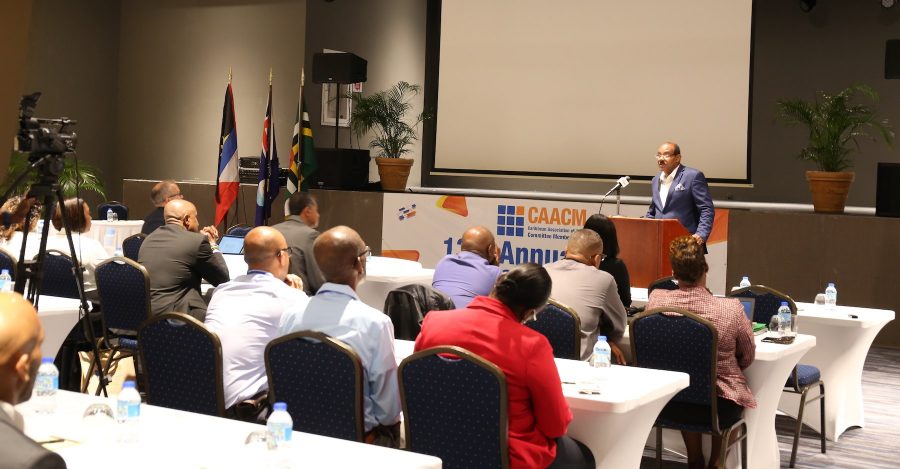The Prime Minister of Antigua and Barbuda, spoke on 13th Annual Conference and AGM and expressed deep concerns related to Correspondent bank relationships (CBR) which is also a major problem related to CIP transactions.
The Caribbean countries have suffered a ‘catastrophic’ damage to their economies, due to correspondent bank issues that arise from de-risking for decades.
De-risking is the phenomenon of Global financial institutions terminating or restricting business relationships with clients or categories of clients to avoid, rather than manage the ‘risk’. Some risks include AML-CFT, tax information exchange, and risks of violating sanctions. This happens small local banks in certain regions of the world. A research published by the World Bank in November 2015 found that the Caribbean was the region most significantly affected. According to the report, a majority of the region’s banking authorities reported a significant decline in foreign correspondent banking relationships.
The most severe effect of de-risking in the Caribbean has been the termination of correspondent banking relationships which includes check clearing and settlement, cash management services, international wire transfers, trade finance and conducting foreign currency denominated capital or current account transactions. The financial institutions, agencies and other entities affected by de-risking include money transfer operators and other remittance companies, small and medium domestic banks, small and medium exporters, retail customers, international business companies, e-gaming/gambling.
Currently the majority of banks in the Caribbean region are reduced to only one correspondent bank, and at an extremely high cost. Consequently, the cost of doing business is escalating, even as we try to cope with high debt, incurred largely to recover our countries from disasters., said PM Browne
Without CBRs, the global financial and trading system would come to a halt, and affected countries will drop into poverty from which recovery will be costly both in time and money, but more importantly in human life. This grave threat has been hanging over the Caribbean now for almost half a decade; and it shows no sign of abating, said PM Browne.
Antigua and Barbuda and four other sister OECS countries that offer economic citizenship to qualified applicants.
Citizenship by Investment programmes which have quite literally saved economies from decline in the face of poor terms of trade, repeated natural disasters, diminished aid and high costs of imports. The CIP is not unique to the Caribbean, also competes with similar programmes in Europe and North America.
CIPs prevent money-laundering since funds received by the government for approved applicants are non-refundable. Nonetheless, some correspondent banks have shy-ed away from transactions related to CIPs., he said
PM Browne urged all Caribbean banks involved in this service to demonstrate to their correspondent banks the extreme care and due diligence used in managing the CIP product and called for to assemble a team of government officials, CIP executives, AML/CFT experts and our banks to hold joint meetings with correspondent banks to sensitize them on the integrity and security of the CIP application and approval process.
“The CIP programmes are too important to our economies and to the welfare of all, including the banking sector, for us not to run the extra mile that might be necessary to disabuse misconceptions and to build-up confidence in them.” said the Prime Minister
“The deprivation of CBRs to our countries is deprivation of a fundamental human right” he stated.
PM Browne announced he is ready to work with financial institutions, banks and other international authorities for compliance including to comply with the Financial Action Task Force’s AML/CFT guidelines and further not included in any black or grey lists.





